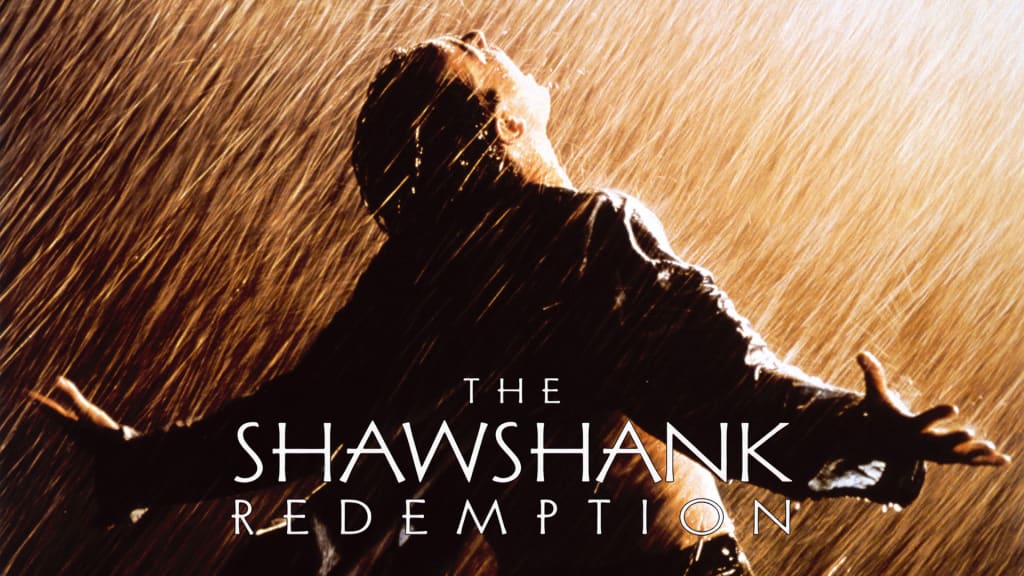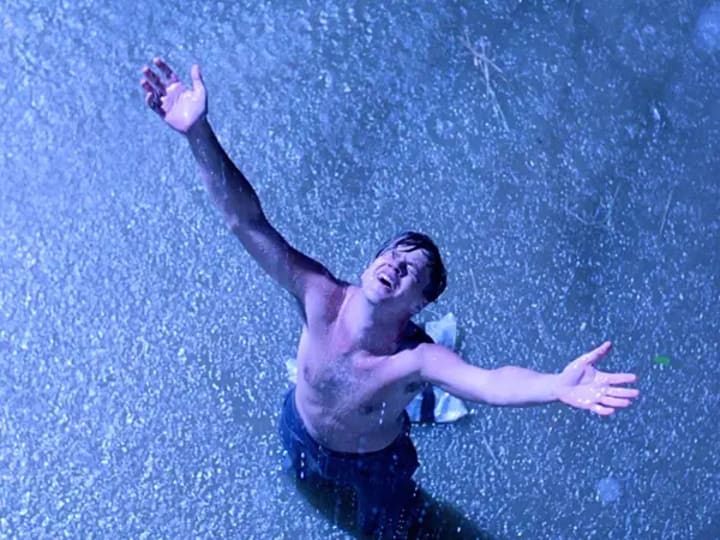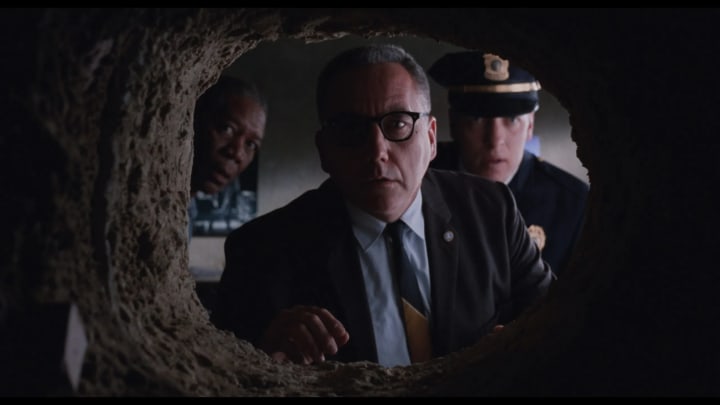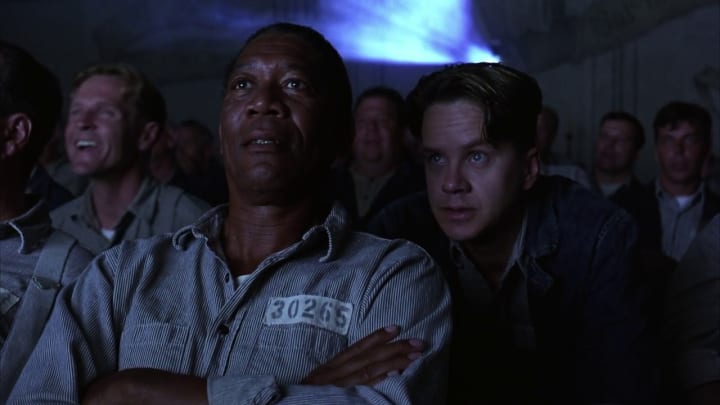
I saw Dreams of Freedom twenty years ago and never saw it again. Also, I don't want to see her again. I know absolutely nothing about the director, beyond the fact that he directed that film and Unexpected Miracles, also based on a story by Stephen King. With Sueños de libertad the same thing happens to me as with Hopscotch, or with Open Veins of Latin America, or with some Beatles records. It goes something like this: «It was very good while it lasted but the truth is that it's over, nothing in my current being yearns for something from that work». I saw dreams of freedom at a time in my life when the humanist discourse that permeates the entire film was not in vogue in the country (as it clearly is not now). Menemism governed us with all its philosophy of the most cruel and stark individualism, so the story of a guy who had to serve a prison sentence and established links of solidarity with the other inmates had to do with the humanitarian philosophy that was at the antipodes of the system that governed us for several years.
I also think that Sueños de libertad is more a film about actors than about a director, that is to say that it is Tim Robbins and Morgan Freeman who build that story and give it that sense of humanity that moved me so much when I saw it. There, as later in Unexpected Miracles, the racial issue and how a subjectivity is built on the rubble of the social fabric, is very important. In that sense, I find it interesting to think of Sueños de libertad in series with another film totally forgotten by cinephiles and that for me was very important biography and sentimental education: I am referring to Escape in Chains(1958), which also deals with the interracial bond between two convicts on the run from prison. In this case, it's Tony Curtis, great and cool as always, and Sidney Poitier, the father of political correctness in American cinema. Stanley Kramer's film has a suspenseful plot (everything related to the protagonists' escape from jail), an element that does not take place in Darabont's: there King's pen and the film adaptation show signs of social interests and the psychological mastery of an author who at that time was a much more complex and rich guy than the marketing image that was given of him and that defined him as a mere best-selling horror author. Something of all this was what one detected even from the innocence of a 16-year-old adolescent.

Dreams of Freedom is perhaps a utopian tale about a world that doesn't work the way it should, and about what men can do with their lives even in the worst of circumstances. In El Bosque Pulenta, Fabián Casas says that being an adult means understanding that the world is hell and that there is no possibility of a good ending. Sueños de libertad is the kind of fiction that thinks that, although there may not be a possibility of total redemption, there are possibilities of small victories, and therein lies part of the richness of the novel and of Darabont's version.

Dreams of Freedom also makes me think of Camus and Jack London, and of the incipient readings of Rimbaud and Artaud that I was going through at the time while discovering the work of Favio and Trufautt. I remember seeing all that humanist legacy that today is transcendent in my history as a spectator and reader, clearly in the film and in King's novel, almost like a beacon to resist.
Dreams of freedom with certainty deals with hope and friendship, and how to recover that battered solidarity. That idea of humanity that runs through the film is what years later led me to study sociology even in that context of dissolution of social ties damaged to death by the neoliberal policies of the Rioja caudillo's government. It is the typical humanist story within the tradition of European and American literature of the late nineteenth and early twentieth centuries. When I was 18, I read The Communist Manifesto (that novel that social scientists constantly try to mummify without success) I immediately thought of the relationship between these two poor devils, and how breaking those chains that oppress men is what much of Stephen King's work is about .
The contrast between the good manners of Andy Dufresne (notably Tim Robbins), imprisoned for the alleged murder of his wife and her lover, and the contrast that this man shows with the rest of the prisoners, is one of the axes on which that circulates the core of the story. In this hostile context, Dufresne establishes a friendly relationship and a very powerful bond with Red (the moving and, thank God, controlled Morgan Freeman), who has been in prison for twenty years for murder. From that link and the possibility of redemption that this union produces in the protagonists, the whole story is remarkably nourished, giving life to the plot and making the captivity of the characters fluid, which, thanks to the acting prowess, at no time overwhelms the audience. viewer.

Dreams of freedom also allows us to reflect on the importance of actors in the cinema. The theory of auteur cinema and the total predominance that it gave to the role of the director reduced to the extreme the preponderance that critics gave to the actors. This film allows us to think about cinema outside of that theoretical scheme according to which the actors are only secondary to the totalizing gaze proposed by the director. The friendship that Robbins and Freeman build spans two decades and it is that relationship that prevails over the suspense (something that did not happen in Fugue Unchained, where the progressive tension played a fundamental role).
Two decades after seeing Sueños de libertad I still remember the impression it made on me when I was able to think about the possibility of redemption for human beings and the importance of art leading us to hope and the utopia of believing that we can dream of a possible freedom. Kind of like living a better life. And that already makes Dreams of Freedom an important film .
Dreams of freedom ( The Shawshank Redemption, United States, 1994), by Frank Darabont, c/Morgan Freeman, Tim Robbins, Bob Gunton, 142′.






Comments
There are no comments for this story
Be the first to respond and start the conversation.